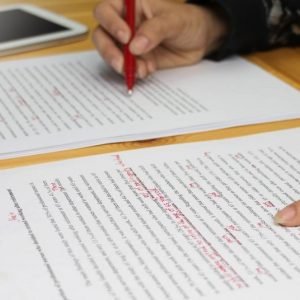Introduction:
When it comes to academic pursuits, the skill of transparent reporting is an invaluable guide that directs students in the direction of success. This extensive manual caters to the specific requirements of Ph.D. candidates, editors, researchers, proofreaders, and thesis editors, taking into account the variety of professions found in academia. Together, we will explore the potential for change in honest reporting and how it may improve professionals’ academic pursuits.
The Foundations of Transparent Reporting
Transparent reporting serves as the bedrock of academic integrity, providing a clear pathway for each stakeholder to contribute meaningfully to their field. For PhD students, it becomes a legacy-building tool, allowing them to contribute not just findings but a transparent account of the entire research process.
To delve deeper into the importance of transparent reporting, you can explore the guidelines provided by institutions like The Office of Research Integrity, emphasizing the ethical aspects of transparent reporting.
Editors: Shaping Clarity in Academic Narratives
Editors, the architects of clarity in academic narratives, play a crucial role in making research accessible. Transparent reporting isn’t just a choice; it’s a commitment to effective communication. This section will explore how editors can implement best practices to enhance transparency in statistical reporting.
For practical insights and resources on enhancing clarity in academic writing, consider referring to the American Psychological Association (APA) Style Guide.
Strategies for Researchers
For researchers, transparent reporting is a powerful tool for building credibility and contributing meaningfully to ongoing academic conversations. Dive into practical strategies that empower researchers to present their statistical data in a clear and accessible manner, fostering progress in their respective fields.
To further understand the impact of transparent reporting on research integrity, explore resources provided by organizations like Committee on Publication Ethics (COPE)
Precision in Proofreading
Proofreaders, the gatekeepers of precision, ensure that every detail aligns with the principles of transparent reporting. From grammar to formatting, this section will delve into how proofreaders can play a vital role in ensuring that research stands resilient under scrutiny through precise language and presentation.
For tools and techniques to enhance proofreading precision, you may find useful insights from platforms like Grammarly
Thesis Editors: Nurturing Strong Foundations
Thesis editors, tasked with shaping the future of academia, contribute to building strong foundations for future research. Transparent reporting becomes a guiding principle, ensuring that the next generation of scholars inherits a legacy of integrity and comprehensive reporting.
Explore the guidelines and resources provided by Council of Science Editors (CSE) for comprehensive insights into editorial standards and transparent reporting in theses.
Addressing the Replication Crisis
The replication crisis has underscored the importance of transparent reporting across all roles in academia. From PhD students to thesis editors, each professional plays a role in combating this crisis. Transparent reporting practices become a collective effort in upholding honesty and rigor in academic pursuits.
For an in-depth understanding of the replication crisis and the role of transparent reporting, refer to articles on Nature’s Special: Challenges in Irreproducibility
Fostering Collaboration
Collaboration is the lifeblood of academic progress. Transparent reporting fosters collaboration among PhD students, editors, researchers, proofreaders, and thesis editors. By sharing openly, academic professionals invite diverse perspectives, leading to collaborative breakthroughs that shape the future of research.
To explore collaborative platforms and networks, consider engaging with academic communities on ResearchGate.
Conclusion: Paving the Way for Academic Excellence
In concluding this comprehensive guide, we’ve unveiled the transformative power of transparent reporting for every role within academia. By mastering the art of transparent reporting, each academic professional contributes not only to personal success but to the collective advancement of knowledge. Let this guide serve as a compass, navigating towards a new era of academic excellence built on the principles of clarity and integrity in reporting.






